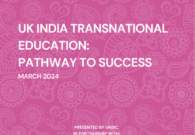Revisions to the India Mauritius Tax Treaty – Impact on investors
India and Mauritius have signed a Protocol to amend their 33-year-old Tax Treaty which provided tax exemption to a Mauritius resident on transfer of Indian securities on 10th May, 2016.

The Protocol grants taxation rights back to India in respect of capital gains earned by Mauritius-based individual investing in Indian entities.
The Double Taxation Avoidance Agreement (DTAA) had granted full taxation rights to Mauritius, in order to ensure taxpayers avoided paying double on their income earned form the source country as well as the country of residence. However, this encouraged individuals and businesses to channel their investments through Mauritius, as the nation does not impose any tax on capital gains. This resulted in double non-taxation on such capital gains. For example, if a company resident in Mauritius buys shares in an Indian company, it would not have to pay any capital gains tax.
The problem here was ‘round tripping’ i.e. Indian money going out of the country being reinvested via Mauritius, resulting in loss of tax money to India. Shell companies were being set up in Mauritius with no real presence and led to discrimination among local and foreign investors.
Due to this tax haven arrangement, Mauritius has been the largest FDI source for India, with $94 billion FDI in India between 2000 and 2015, accounting for 34% of the country’s total FDI.
The Protocol attempts to give the taxation rights on capital gains back to India and also provides the following:
- Stability and certainty to the investors by retaining the tax exemptions in respect of investments made prior to 1 April 2017.
- Provide concessional tax rates on capital gains during the transitional period (1 April 2017 to 31 March 2019), subject to the satisfaction of (i) primary purpose test and (ii) conduit/shell company test and (iii) bonafide business activities test.
- Impose tax on the interest income at a concessional rate of 7.5 per cent.
- Introducing Service PE into the ambit of PE.
- Introducing the concept of fee for technical services and imposing tax at the rate of ten per cent such services, to be in alignment with the UN Model treaty.
- Plug the loophole available in the form ‘other income’.
- Further strengthening of the exchange of information clause.
What does this treaty mean for the investors?
Applicable on investments made after April 2017, (existing investments made before this date will be exempt from capital gains tax), many foreign investors will have to redraw their strategies. Interest arising in India to Mauritian resident banks will be subject to withholding tax in India at the rate of 7.5 per cent in respect of debt claims or loans made after March, 31, 2017. However, interest income of Mauritian resident banks in respect of debt-claims will be exempt from tax in India.
The incentive to route cash flows through Mauritius will cease to exist once the new rule kicks-in. This could raise their tax outgo. This treaty will also lead to an initial impact on the foreign institutional investments (FIIs), asset managers and India’s treaty with Singapore.
These Treaty changes should be seen in light of Finance Minister Arun Jaitley’s announcement in the budget for 2016-17 to implement General Anti-Avoidance Rules (GAAR) from April 1, 2017
To know more about how the Treaty will affect the UK business register now for our webinar on 20th July, when Mr S. R. Patnaik, partner from Cyril Amarchand Mangaldas, will be able to answer your queries.







